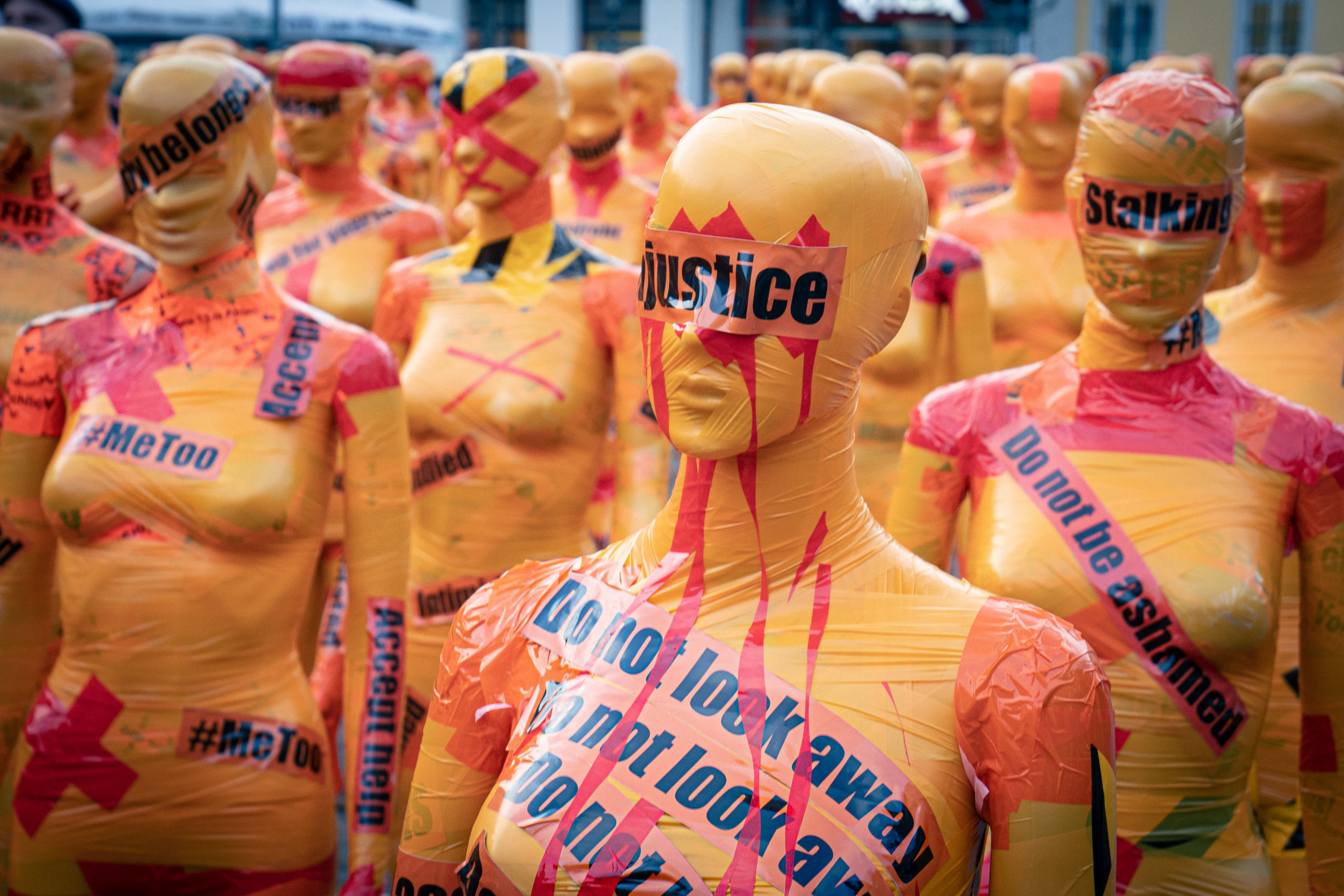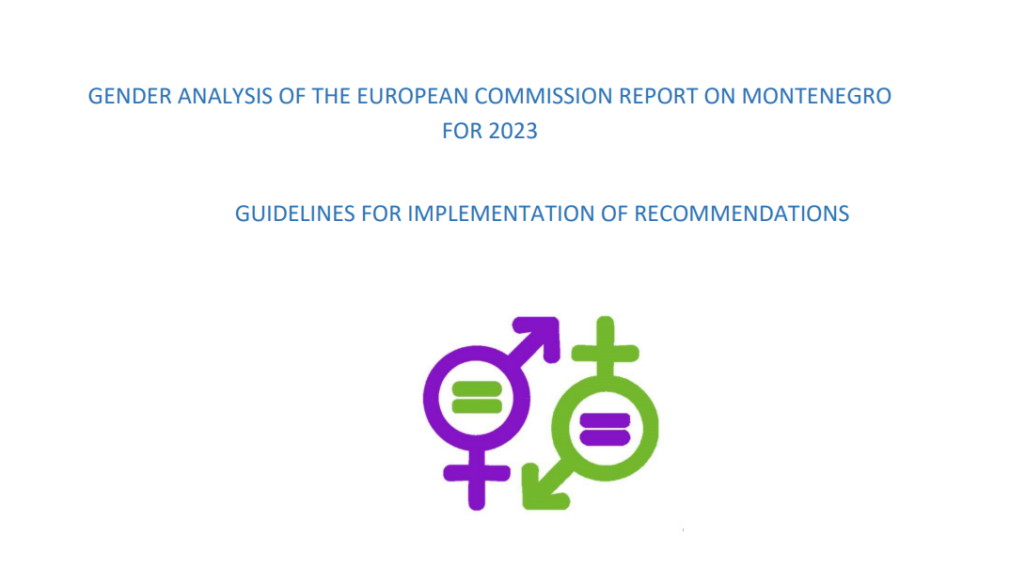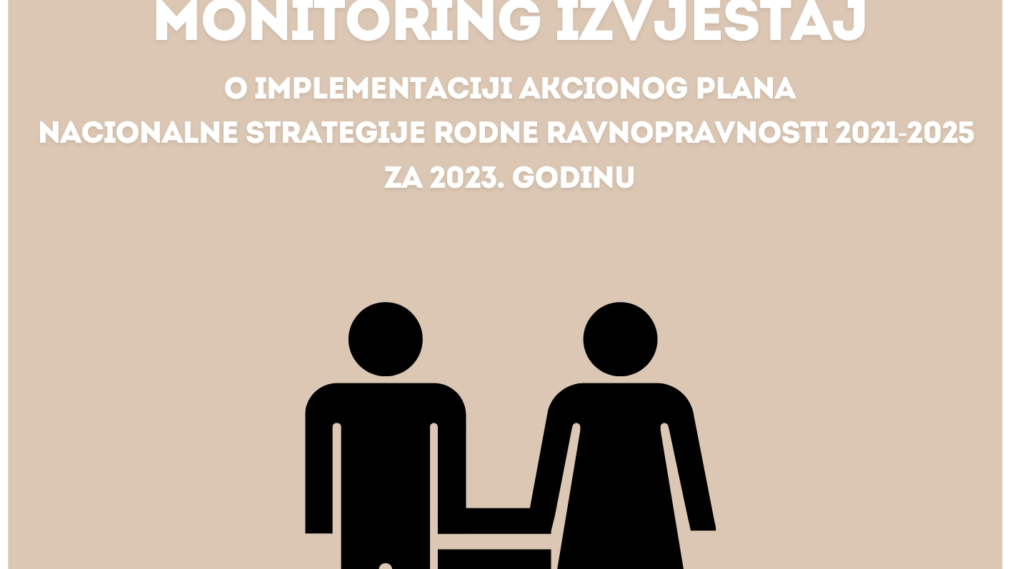1571Views 0Comments

Victims of sexual violence need unconditional community support
Why do victims do not report sexual violence, what kind of support they need, who are the perpetrators – Maja Raicevic, executive director of Women’s Rights Center answers these questions for Pobjeda journalist Željka Zvicer.
After Serbian actress Milena Radulović filed a report and spoke about the sexual violence she experienced publicly and on social networks, people started talking about rape and providing support to victims. One of them is an activist and influencer from Montenegro, Nataša Gardašević. She was approached by a large number of women who shared with her the experiences they had regarding sexual violence. She posted the messages she received on her Instagram profile, protecting the identity of the women who sent them. A large number of messages and difficult experiences can be seen on the profile. How do you comment on this situation?
Unfortunately, I am not surprised. I am grateful to Nataša for creating a platform that allows women to share their experiences. Such initiatives and personal examples, like Milena Radulović and her colleagues’ case, are very important since they make a huge contribution to encouraging victims to report, or at least to be aware that they are not the only ones who experienced such things. In addition, the courageous appearances of women in Serbia made it possible to expose a gruesome matrix of sexual abuse, not only in the mentioned acting school, but in the entire profession that ruthlessly abuses women and girls. However, the most important thing is that they protected girls who survived similar things from the same abuser, but also from others who are mentioned in the confessions of girls and women. Numerous examples can be seen on the page “Nisam tražila” (”I was not looking for it”), where statements from women from the entire region, including Montenegro, appear. The number of women who emerged is frightening, but we who have been dealing with this problem for a long time know that the number of known and reported cases is just the tip of the iceberg, that the number of victims of sexual violence is much higher, but that it is not reported due to the stigma that follows the victims of this criminal offense or the fear of consequences.
Do victims of rape contact you and how do you act in those situations?
We are mostly approached by young women, who find it difficult to cope with the trauma caused by sexual violence and who need psychological support or psychotherapy. In all cases, we act with the utmost confidentiality, we respect their wishes and needs, we never suggest that they report the crime if they are not ready and do not want to. Whether they will report immediately or years later, when they go through the recovery process or they will not report at all – is only their decision that needs to be respected and supported.
If they decide to report the case, we are with them through the application process as confidential persons; we provide free legal aid and a lawyer who will represent their interests throughout the proceedings. All this goes simultaneously with the mentioned psychological support, in accordance with their needs. I believe that in this way we contribute to reducing the risk of secondary victimization – a trauma that occurs not only due to the violent event itself, but also due to inadequate support or the response of institutions to the report. Support must be unconditional, without questions that defy such a difficult experience as sexual violence.
Why is rape not reported? What are the main reasons and how is this act viewed in our society?
The most common reasons are shame, fear and guilt. Sometimes it is distrust in the protection system and the fear that reporting the abuser will harm the victim’s family and relatives, that she will disappoint them, lose her reputation, etc. Besides, none of us want to be seen as a victim. Our culture identifies this with weakness, and weakness is not tolerated.
Sexual violence is a very humiliating and dehumanizing act, which makes the victim feel desecrated, disgraced and ashamed. Shame and loneliness are often accompanied by feelings of guilt. Victims of sexual violence almost always blame themselves, and it’s not hard to understand why. Namely, the prevailing attitude in our culture is that a woman is guilty when something like this happens to her. We can see that even now from numerous comments on social networks. When we say or write things like ‘She wasn’t supposed to dress like that, or ‘Why did she go to that party, ’ or ‘ Why didn’t she report him? ’, we find a reason to blame the victim.
The women who approached Natasha also spoke about the consequences that sexual violence had left on them. What can you tell us about the consequences of rape that victims endure?
The consequences depend on the severity and intensity of the violence, the duration, the age, whether the abuser is a close person, a family member, etc. Not every person has the same capacity to deal with trauma. The environment, the existence or the lack of support from close people is also important. Overcoming this type of trauma usually requires time and specialized professional help, which is inaccessible to many women. Children especially.
An individual approach in accordance with the needs of that person and the seriousness of the consequences is always important. Some of the consequences can be emotional problems, psycho-somatic problems, poor functioning in society, family, feelings of helplessness, lack of control over one’s own life, withdrawal, fear of intimate relationships, intimacy, etc. Depression and other mental difficulties can also occur.
In the past few days, in addition to support, we have witnessed numerous comments on social networks provoke and attack women because they are silent about rape. Can you comment on that?
I think I gave an answer to that in the previous replies. I can add that those who do such things are part of the problem and one kind of secondary abusers.
Who are the rapists? How do they behave and how do they manipulate the victim? Some data suggest that rapists are the most commonly persons a victim is acquainted with- is that true?
That is true; it is usually someone the victim knows – a family member, intimate partner, co-worker, schoolmate or acquaintance, superior person in the workplace. Due to the wide range of sexually aggressive behaviors and the many different motivations underlying such behaviors, one cannot speak of just one typical profile of a perpetrator of sexual violence. They can be identified depending on the nature of the violence they commit, their relationship with the victim, their age and the age of the victim. Thus, there are perpetrators who sexually abuse children, including perpetrators from the family and outside, perpetrators of sexual violence against adults, most often women, and there are also minors who commit sexual abuse. However, these categories are not mutually exclusive, so the same person can be violent towards both adolescent and adult women. Such persons are often called monsters, or sexual predators, but such characterization can create difficulties in recognizing the perpetrator in a close person, or create the public impression that sexual violence is committed by people who are unknown to the victim and who seek and choose their victim randomly. In reality, this is the case with only a very small percentage of perpetrators.
In the messages that Nataša received, the women also said that they had experienced sexual violence as minors, which is additionally worrying. How to help in these cases?
In such cases, the most important is the unconditional support of close people, parents and other family members, and depending on the severity of the trauma, specialized professional help from a child psychologist or psychiatrist. In Montenegro, unfortunately, we have only one child psychiatrist and only in recent times. If the perpetrator is a parent or a close family member, then it is necessary to involve professional services, the Social Work Center and the Court, in order to prevent further contact of that person with the child and provide support to a non-violent parent, usually the mother.
Women also said that they did not have a support system. In one experience, a woman talks about how, after complaining to her mother, she replied that she had caused it herself (paraphrasing). How do you comment on that?
This, unfortunately, is not uncommon. Sometimes it is even easier for people who are close to them to blame the victim than to believe in something as difficult as sexual abuse, especially if the abuser is a close and familiar person. There is also the fear of the consequences of disclosing violence, when the abuser is an authority in the family and society, and also, there is a misconception that trauma will be forgotten if it is not talked about.
After these events, do you plan to contact Natasha in order to possibly get in touch with the women who contacted her?
We are already in contact, we have known each other for a long time and we support each other. Nataša published the contacts of the “Women’s Rights Center” on her social networks, with the message that women and girls can turn to us for help and support.
I take this opportunity to share this information with you here as well:
NGO Center for Women’s Rights
Bokeška 20, 1st floor
Tel: 020 664193;067166 800
We recieve calls every working day from 9 am to 5 pm.


